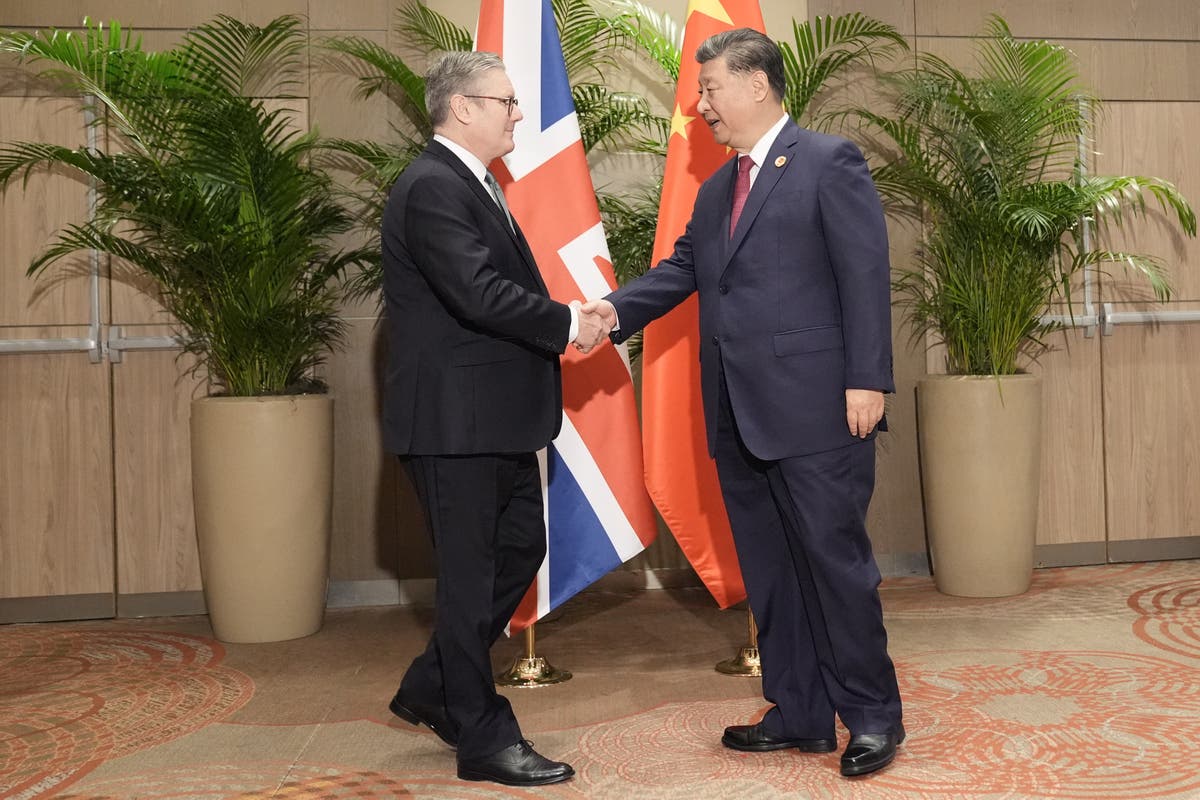Reset” is fast becoming a (not particularly inspiring) catchphrase for the prime minister, a small word that is being forced to carry some humongous burdens in this early phase of his premiership. The much-heralded, but seldom-defined, “reset” of the UK’s relations with Europe has yet to yield much beyond warm words and warmer meetings with EU leaders.
Even less happily, there has been the need for some “resets” on policy during his first months in office. Now, though, comes the most formidable “reset” of all – with China, initiated at the G20 summit in Rio…
Why does the UK need a “reset” with China?
Well, on some measures, it’s already the largest economy on earth, and is easily an industrial, technological and military superpower – the only plausible challenger to the United States for pre-eminence in the 21st century. So it’s hard to ignore, quite aside from the perennial legacy issue of Hong Kong.
Without this “reset” meeting, for example, Keir Starmer would not have been able publicly to raise the case of Jimmy Lai, whose health, Starmer informed Xi Jinping, is “deteriorating”. (At this point, the two British reporters in the room were removed by Beijing’s officials).
Also, Britain needs the trade, investment and business China could bring. Often forgotten now, but a trade deal with fast-growing China was one of the more tempting of the “Brexit benefits” dangled before the British people during the 2016 EU Referendum. Indeed, during the Coalition government only a decade ago, British ministers worked extraordinarily hard to make the most of what they hoped would be a “golden era” in Sino-British relations. David Cameron even discussed the matter over a friendly pint at a pub near Chequers with President Xi himself.
Will there be an economic dividend to the “reset”?
That’s the idea. It is no coincidence that the Starmer-Xi reset meeting is being held in advance and in preparation for a mission to Beijing being led by the chancellor, Rachel Reeves, “early” next year – no time to waste. The session in Rio is the first between the two nations’ leaders since 2018, and Reeves will revive the “UK-China Economic and Financial Dialogue”, dormant since 2019.
Notably, Reeves had talks with He Lifeng, China’s vice-premier, after which Beijing announced the economic dialogue, stymied by political rows and the coronavirus, would resume. In parallel with the official discussions, a private sector delegation was expected to hold a financial services summit, just as happened during the Cameron administration.
What about Trump’s tariffs and the US-China trade war?
Tricky. It would be nice to think that the UK could just carry on trading as now or even secure more advantageous terms simultaneously with China and the US – a potentially useful post-Brexit freedom used to excellent effect.
However, it’s more likely that the Trump administration will, deliberately or inadvertently, force the British to take America’s sides in its trade wars with Beijing and, more damagingly, Brussels. The upshot is that, on balance, the UK, a small player in a three-way economic war between three mega-blocs, could be trampled, and its already anaemic growth prospects flattened.
Why can’t we carry on as we are?
It ain’t working, either in the UK’s economic interests nor in those of, say, the people of Hong Kong, whose human rights are being continually extinguished, despite British sanctions and diplomatic objections. Nor do the Chinese seem to take all that seriously the modest deployment of British armed force in the Indo-Pacific region, including lengthy journeys by the Royal Navy’s two Queen Elizabeth-class aircraft carriers.
If Beijing takes little notice of a superpower such as America (for example in their tacit support for Russia’s invasion of Ukraine) why should they care about Britain, a long-since departed imperial power they have had little affection for since the opium wars?
And the politics?
The Tory right, like their Republican counterparts, will be furious, and see it as a craven betrayal. In domestic British politics, however, it will only matter insofar as it affects the economy.

